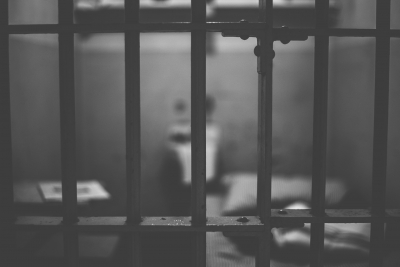New Delhi: The Supreme Court Tuesday said prisoners, including disabled ones, not being provided “preferred or costly food items” in jails was not a violation of fundamental rights.
A bench of Justices JB Pardiwala and R Mahadevan said the right to life under Article 21 of the Constitution extends to all prisoners; however, it did not confer a right to demand personalised or luxurious food choices.
“Mere non-supply of preferred or costly food items cannot ipso facto be treated as a violation of fundamental rights…The State’s obligation is to ensure that every inmate, including those with disabilities, receives adequate, nutritious, and medically appropriate food, subject to medical certification,” the bench said.
The top court called prisons correctional institutions and not extensions of civil society’s comforts.
The non-supply of non-essential or indulgent items does not amount to a constitutional or human rights violation unless it results in demonstrable harm to health or dignity, it added.
“Prisons are often regarded as the ‘tail-end’ of the criminal justice system – historically designed for rigid discipline, harsh conditions, and minimal liberties. While modern penological principles advocate rehabilitation over retribution, the current prison infrastructure and operational systems in India remain grossly inadequate, especially when it comes to meeting the needs of prisoners with disabilities,” the verdict said.
The apex court’s observations came on an appeal filed by advocate L Muruganantham, suffering from Becker muscular dystrophy, against an order of the Madras High Court which ordered him Rs 5 lakh compensation.
The imprisonment was the result of a land dispute his family was embroiled in with another person.
He claimed to have not received adequate protein-rich food, such as eggs, chicken and nuts, on a daily basis during incarceration.
The apex court said in the present case, though the deficiencies in prison facilities may not be directly attributable to the respondent authorities, they highlight the urgent need for prison reforms, particularly the implementation of disability-sensitive infrastructure and protocols.
The court was conscious of the systemic neglect in prison infrastructure, especially in relation to the needs of prisoners with disabilities.
“Persons with disabilities must be provided healthcare equivalent to that available in the general community. This includes access to physiotherapy, speech therapy, psychiatric care, and assistive devices, such as wheelchairs, hearing aids, or crutches. Prison authorities are under a duty to coordinate with public healthcare systems to ensure uninterrupted care. Logistical or financial limitations cannot be cited to justify a withdrawal of this obligation,” it said.
The top court found most state prison manuals to be “outdated” besides being “uninformed” by developments in disability law and rights-based discourse.
“They frequently conflate sensory or physical disabilities with mental illness or cognitive decline, thereby eroding the distinct legal right to reasonable accommodation. This conflation promotes harmful stereotypes and obstructs disabled inmates from claiming their lawful entitlements,” it said.
The apex court said the state had a constitutional and moral obligation to uphold the rights of prisoners with disabilities and this includes not only ensuring non-discriminatory treatment but also enabling their effective rehabilitation and reintegration into society.
PTI






































